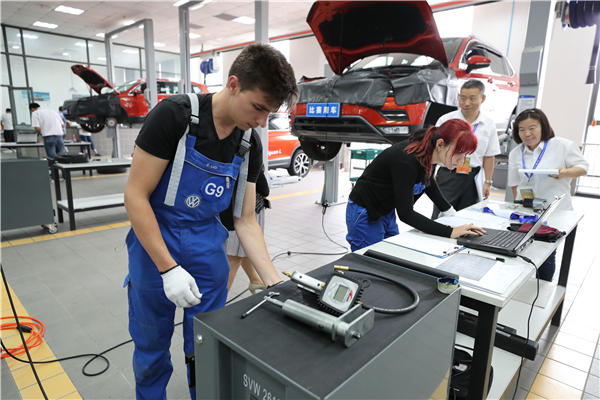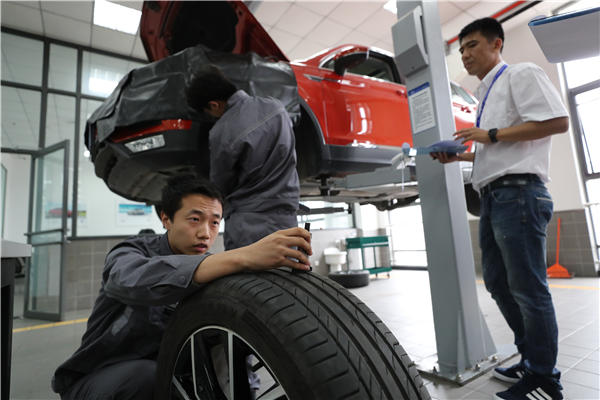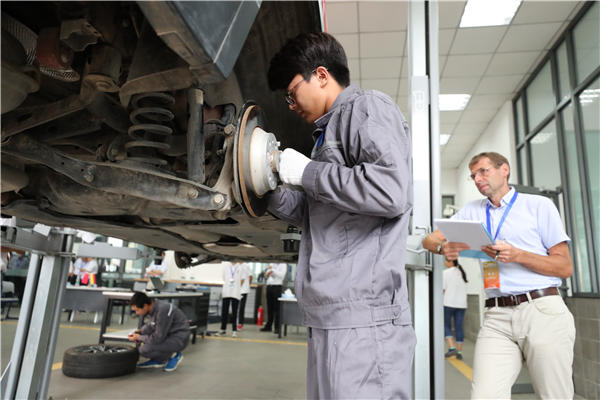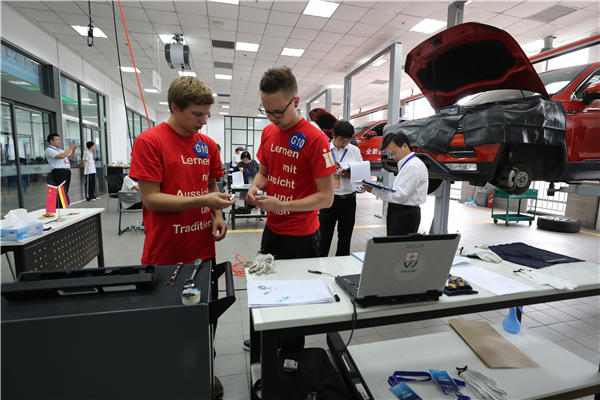China-Germany international automobile maintenance contest held in Beijing
By DU JUAN | chinadaily.com.cn | Updated: 2019-07-24 23:50

Beijing's first automobile maintenance contest between students from China and Germany's vocational education sectors was held early this week.
The one-day contest, called "SAIC Volkswagen Cup", was aimed at promoting communication between the two countries and strengthening ties.
It took place on July 22, with two competition parts - dismantling and fault diagnosis. In the first part, students undertook tasks related to tire and brake pad assembling. In the second part, they needed to find and fix problems in the vehicles within 50 minutes.
Working in teams of two to represent their countries, up to 44 young students participated in the contest.

Two teams from Beijing Vocational Transportation College and two from Germany's CDS-Friedrichshafen Claude-Dornier-Schule got the gold award.
"The contest has shown the vocational education level in China and Germany, which formed a bridge for the students' skills and cultural exchanges," said Wang Dongjiang, head of the Division of Vocational and Adult Education under the Beijing Municipal Education Commission.
"The contest has shown the spirit of workmanship and teamwork of the youngsters from the two countries. I believe such contests and communications will continue in future."
Han Tao, chief judge of the contest and senior manager of technology training at Volkswagen Academy Sales & Service, said the contest had provided a chance for students to communicate not only at class but also at real practice.

"The German students followed the protocol strictly one step by another during the dismantling section, which is worth learning," he said. "The experience they got from the contest will be beneficial for their work in future."
Matthias Kurrle, head of the Department of International Cooperation in Teacher Education at Center for Quality and Teacher Education at the Ministry of Education, Youth and Sports of Baden-Wurttemberg, said the education system from the two countries have their own advantages and the communication between the two sides are beneficial for both.
"In Germany, students in vocational schools started practical work at car companies from the first year when they entered into the school," he said. "The theoretical lessons and the practical work are given to the students at the same time, which means they can walk into a car maintenance store and start working smoothly right after graduation."

However, in China, students get lessons at school for the first few years and then start internships or practical work in the later years of their study.
In 2014, led by Beijing's education commission, seven vocational schools signed with Baden-Wurttemberg's education authority to cooperate on automobile maintenance education.
As part of the cooperation, 20 German experts in total came to Beijing for training and 50 Chinese students went to Germany for study and practical training.























